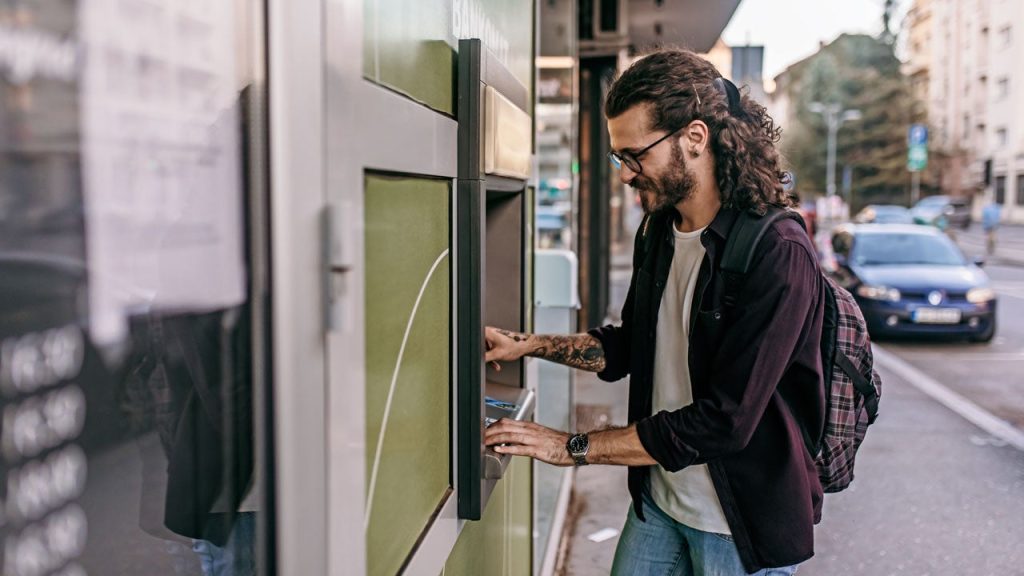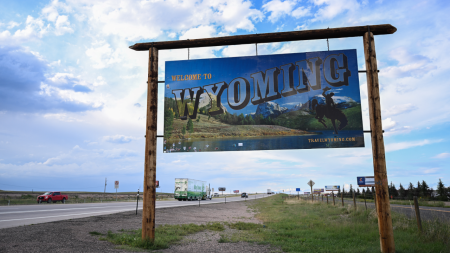Key takeaways
- Yes, most ATMs at major banks accept cash deposits, though not all machines have this capability.
- You can typically only deposit cash at ATMs owned by your bank or partner networks.
- Cash deposits usually become available within one business day, but some banks offer instant availability.
Yes, you can deposit cash at many ATMs, but the rules vary by bank and machine type. Most major banks like Chase, Bank of America and Wells Fargo offer cash deposit capabilities at their ATMs.
Not every ATM accepts cash deposits, though. You’ll need to find one specifically equipped for deposits, and you’ll typically need to use your own bank’s ATM network to avoid fees and delays. Understanding these limitations can save you time and money when you need to deposit cash quickly.
Can you deposit cash at an ATM?
It’s often possible to deposit cash at an ATM, though that may depend on a couple of factors.
First, you need to check to see if your bank allows for cash deposits through an ATM — most large, traditional banks do. Second, you also need to find an ATM that’s equipped to handle cash deposits. In the Allpoint ATM network, for example, only those with an “Allpoint +” logo support cash deposits.
Many online-only banks don’t allow cash deposits, which can make it tricky to get your funds into your account.
One solution is to opt for an automated clearing house transfer from another bank account that allows cash deposits. Alternatively, some online-only banks allow cash deposits in nontraditional ways. With a Current account, for example, cash can be added by making a deposit at more than 60,000 retailers, including participating CVS Pharmacy and Walmart stores. But it’s not free; Current charges $3.50 a deposit.
How to deposit cash at an ATM
Depositing cash at an ATM is simple once you find a machine that accepts deposits. Modern ATMs can count your bills automatically without requiring an envelope, making the process faster and more accurate than older systems.
- Insert your debit card and enter your PIN to access your accounts
- Select “Deposit” from the main menu options
- Choose your account if you have multiple accounts (checking vs. savings)
- Insert your cash directly into the deposit slot when prompted
- Confirm the amount after the machine counts your bills
- Complete the transaction and take your receipt
These instructions only apply to depositing cash into your own bank account. You’ll need to choose another option to deposit cash into someone else’s account.
When does your cash become available?
Most banks make ATM cash deposits available by the next business day, but timing depends on several factors including when you make the deposit and which ATM you use.
- Same-day availability is possible if you deposit before your bank’s daily cutoff time, usually between 2 p.m. and 9 p.m. Deposits made after the cutoff time are processed the following business day.
- Instant availability is offered by some banks for deposits made at their own ATMs. Banks like Ally and Capital One 360 provide immediate access to cash deposits, while others may hold funds for verification.
- Longer processing times occur when you use out-of-network ATMs or deposit large amounts. Some banks place holds on deposits exceeding certain thresholds, similar to check deposit policies.
Weekend and holiday deposits typically process on the next business day, so a Saturday deposit might not be available until Tuesday if Monday is a bank holiday.
Dollar limits and fees
Banks impose various limits on ATM cash deposits to manage risk and machine capacity. These restrictions usually focus on the number of bills rather than dollar amounts.
- Bill limits typically range from 30-50 bills per transaction at major banks. You can make multiple transactions if you need to deposit more bills, though some banks impose daily transaction limits.
- Dollar limits are less common but exist at some institutions. These might cap deposits at $5,000-$10,000 per day, depending on your account type and relationship with the bank.
- Out-of-network fees can cost $2.50-$5.00 per transaction when using another bank’s ATM. The ATM owner may also charge their own fee, potentially doubling your costs.
Where to find ATMs that accept cash deposits
Several options are available to locate ATMs that accept cash deposits:
- Bank branches
-
The most straightforward way to find ATMs accepting cash deposits is by visiting your bank’s branch. Check with your bank to see if nearby branches are equipped with cash deposit ATMs.
- ATM network partnerships
-
Some banks form partnerships with other financial institutions or ATM networks to expand their reach. See if your bank has a partnership with another network that offers cash deposit ATMs, such as the Allpoint+, Co-op or MoneyPass ATM networks.
- Online ATM locators
-
Various websites and apps specialize in providing comprehensive ATM location services, and they may allow you to filter your search based on which ATMs are able to take cash deposits. For instance, the MoneyPass ATM locator has a deposit-taking ATMs filter.
- Customer service hotline
-
If you’re having trouble locating cash deposit ATMs, you can always reach out to your bank’s customer support line. Representatives can provide information about nearby ATMs and whether they support cash deposits.
Can you deposit cash at an ATM that’s not owned by your bank?
You may not be able to deposit cash outside of your bank’s network at all, unless the ATM has an existing partnership with your bank. Some institutions let you deposit cash at an out-of-network ATM but charge you for the transaction. Also remember that out-of-network ATM vendors may charge their own fees on top of what your bank charges you. In addition to charging fees, some banks take longer to process out-of-network ATM deposits than in-network ones.
It pays to be clear on charges and processing times before you head to an out-of-network ATM for any banking task.
Bottom line
You can deposit cash at most bank ATMs, but success depends on finding the right machine and understanding your bank’s policies. ATM deposits offer convenience for after-hours banking, though you’ll typically need to use your own bank’s network to avoid fees.
Before relying on ATM deposits, check your bank’s specific rules about availability times, deposit limits and fees. Consider alternatives like branch deposits or electronic transfers if ATM deposits don’t meet your needs.
Why we ask for feedback
Your feedback helps us improve our content and services. It takes less than a minute to
complete.
Your responses are anonymous and will only be used for improving our website.
Help us improve our content
Read the full article here









